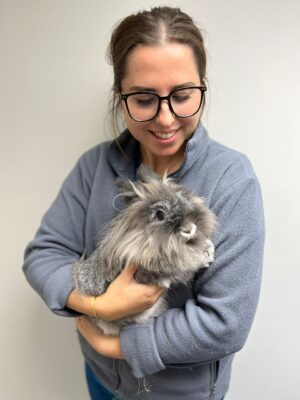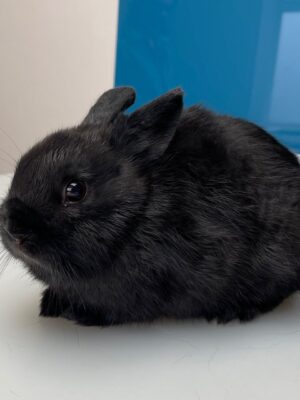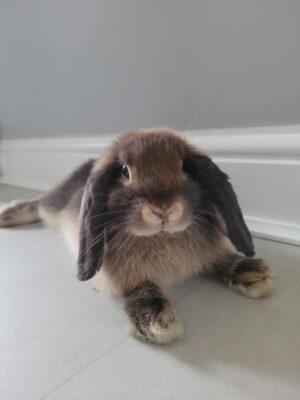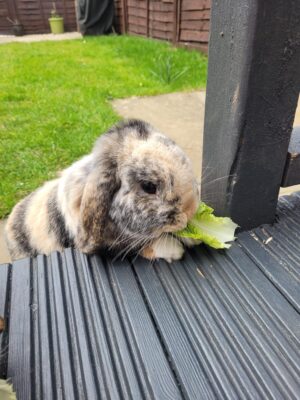Rabbit Care Information
New to owning rabbits or even if you have had the enjoyment of having rabbits before, here is some basic care information to help you give the best care to your bunnies.
Is a Rabbit for you?
Rabbits are a long-term commitment and need more care and attention than you might realise. We advise that you do lots of research prior to getting a rabbit just to ensure that they are the right pet for you. The more you understand a rabbits’ cares and needs, the better life you will be able to give them.
Diet
A good diet is incredibly beneficial for rabbits, it can help keep them healthy and also prevent boredom. A rabbit’s diet is predominantly roughage (hay/grass), along with some healthy greens and good quality nuggets/pellets. Nuggets are better than a muesli type food as they cannot just pick out the bits they like! Rabbit digestive systems are very specialised and generally quite complex, so a simple way to think of it is – rabbits are what they eat. They need good bacteria in their gut in order for them to stay healthy.
Water is also very essential for rabbits. Either bottles or bowls can be used, however bottles can block whereas bowls cannot.
It is very important for rabbits to constantly eat and drink to prevent a block of their guts, this is more commonly known as gastro-intestinal stasis or ileus. When this is happening to your rabbit, they will produce no droppings, or only very small hard droppings. This can be life threatening to rabbits and you must call us straight away.


Housing
The right environment for your rabbits is essential. They should be housed in a safe, enclosed area (hutch) of 3m x 2m x 1m high with available access to an outside space in order to exercise. Rabbits can run for up to 5miles a day!
This space allows them to exhibit their normal behaviours, such as digging, chewing and foraging. Rabbits are ‘crepuscular’, meaning they are most active at dawn and dusk. Therefore having a secure outside space attached to their hutch is most beneficial so they can express their normal behaviours.
Rabbits should never be kept alone, they are highly social creatures and their company should be with other rabbits. They must have at least one bonded partner to ensure they are never lonely, or become anxious from being alone.
Handling
Rabbits are a prey species so care must be taken to ensure that they are handled correctly to prevent panic. Building confidence is key for them to feel safe, start with hand feeding and stroking. Then when you do come to pick them up, ensure that they feel secure and you support their whole body. You must be careful with placing them back down, ensuring they do not jump off as they could easily hurt themselves.
Vet Care
Teeth: rabbit’s teeth keep growing, the specific chewing action of eating their roughage naturally wears their teeth down. If they do not eat enough roughage, ‘spurs’ can form on their teeth where it is not worn down, these can cut into your rabbit’s gums/tongue causing severe discomfort and prevent them from eating.
Nails: these may need trimming from time to time as domestic rabbits are less likely to wear them down naturally. Long nails can get caught and cause trauma.
Vaccinations: vaccinations are very effective to protect against Rabbit Viral Haemorrhagic Disease (RVHD) and Myxomatosis. There are two strains of RVHD, both are lethal so you must vaccinate to protect your rabbits.
Neutering: prevents life threatening problems and prevents unwanted pregnancies. The exact age varies with respect to breed, ranging from 4-6 months and up to 9 months in giant breeds.
Flystrike: this happens when flies lay their eggs on your rabbit, those eggs hatch into maggots. You can prevent this by checking your rabbit’s bottom at least once a day, keep hutches clean, optimise your rabbit’s diet to prevent loose stools, fit flyscreens to the hutch, and preventative treatments.











